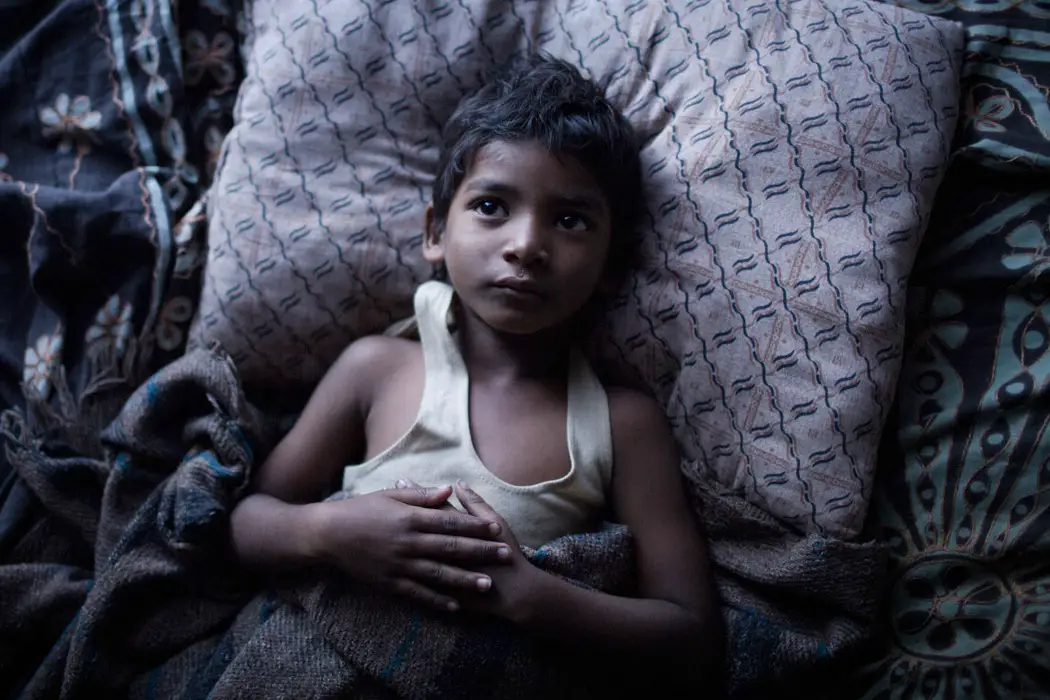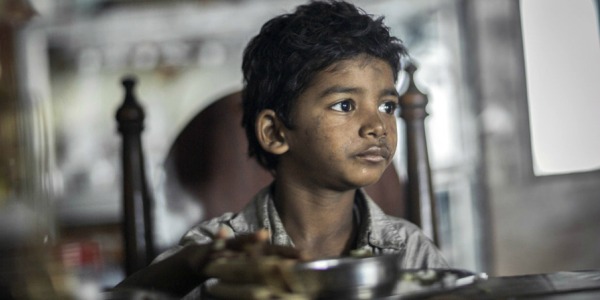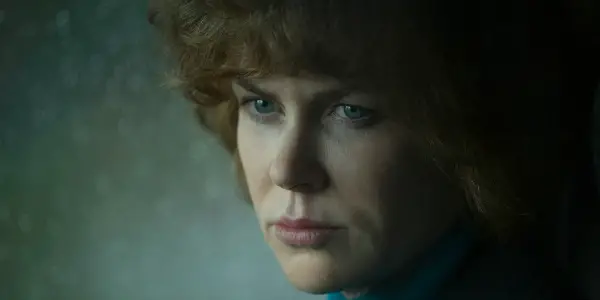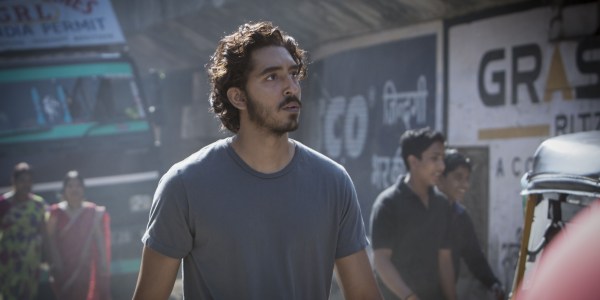The Nominated Film You May Have Missed: LION

Stephanie Archer is 39 year old film fanatic living in…
Every year, ten movies are bestowed the honor of becoming nominated by the Academy of Motion Arts and Sciences. Many of those films will have already had various successes throughout the year – good festival attendance, box office success and the receiving of other prestigious awards. Yet, only one of them ends their evening being declared the best of the best.
Each month, I select one of these films that, while honored with a nomination, did not achieve the highest recognition – a film for your reconsideration. Bringing them back into the light and into the minds of viewers gives them the chance to shine once again and reach a new group of people who may have never considered the film previously. This month, with the Academy Awards right around the corner, I have chosen to redirect my film selection to recognize one nominated this year for Best Picture that I feel has been the most underrated film of the year – Lion.
While this film has as good a chance as any at solidifying itself as a Best Picture winner (even with La La Land favored to win), the competition this year is fierce – a vast array of films with a strong critic and fan backing. The film presents itself as an “Oscar-bait” movie – it is a story that pulls at the heartstrings of viewers and has an almost impossible goal to achieve – yet Lion was so much more than that.
Adapted from Saroo Brierley’s biography A Long Way Home, Lion was a brilliantly paced film by director Garth Davis about not only a lost boy’s journey home, but a long standing problem thousands of India’s children face each year. It is not only an all-around filming success that renders it deserving of its nomination – but also the relevance that it holds for a country.
Lion
Lion begins with two brothers, Guddu (Abhishek Bharate) and young Saroo (Sunny Pawar), jumping a cargo train in a remote location of India. Throwing heaps of coal and rock into handmade satchels, they narrowly escape one of the train’s engineers. Following the tracks to their little town, they exchange their spoils for milk to bring home to their family. It is through these scenes we are introduced to the poverty and environment these young boys have grown up in.

Emulating his older brother and determined to prove his strength, Saroo persistently demands that he be brought along with Guddu for the night work he is about to undergo for the family. Reluctantly agreeing, Guddu takes Saroo with him on the long train ride to an unknown town late in the night. Saroo, exhausted from the trip, asks to be left on a bench at the station. Guddu obliging, promises to return for him when the night’s work is completed, yet Saroo, waking early, wanders in search of his older brother, deciding to wait on an old abandoned train.
Saroo awakens the next morning on the abandoned and locked moving train, yelling for his brother and for help – but neither come. Finally arriving in Calcutta (a good 1,600 kilometers from his home), Saroo desperately tries to find someone who will help him. Yet, he is one of thousands, with lost and homeless children being a prevalent occurrence in India. For the next two months, Saroo will learn to live on his own with no home and no family, and to face the terrors that threaten the lost children of India.
Stumbling onto the kindness of a stranger, Saroo is brought to a local orphanage and is matched with a family in Australia looking to give a child a second chance. Embracing every opportunity his new family introduces to his life, Saroo (now played by Dev Patel) leaves his past behind him and looks to the future – but the future won’t forget him. Guilt and memory creep back into Saroo’s life, and with a new technology called Google Earth his guilt leads him to obsession – can he find ever his way home?
The Acting Troupe
Last year, the world was introduced to Jacob Tremblay – a young Star Wars fanatic child actor who stole our hearts and skyrocketed to stardom with his performance in Room. This year, viewers in the world of film were introduced to a new standout child actor – the adorable and talented Sunny Pawar. Critics and fans of the film were taken away by his performance, as well as his memorable appearance as a presenter alongside Dev Patel at this year’s Golden Globe Awards.

For the casting of young Saroo, director Garth Davis and casting director Kristy McGregor needed to cast a small child that could be their Lion – and Sunny Pawar delivered. Yet, what made his performance most remarkable was his ability to transcend language. No matter the country, or the language spoken, this young actor will touch the hearts of all. His interpretation of admiration for an older brother, to the despair and fear on a train, to the acceptance of circumstance, was the most compelling aspect of the film – a performance that would give veterans a run for their money.
Joining Sunny Pawar to round out a stellar cast was Dev Patel and Nicole Kidman. Dev Patel spent eight months preparing for this role mentally, emotionally, and physically – a dedication to a part that was executed so well it has garnered him several nominations and awards – including an Oscar nomination for Best Supporting Actor. Nicole Kidman, handpicked by Sue Brierley to play herself, brought a performance to screen that validates the core of acting, drawing on one’s own life and experiences to strengthen a performance. In real life, Nicole Kidman is the proud mother of two adopted children – an element that is paralleled within this film.
Score and Other Technicalities
Lion is a film whose every emotional element is cohesively sewn together through its careful musical threading. After my second viewing of this film (within four days mind you), “Searching for Home” by composer Dustin O’Halloran and Volker Bertelmann (also referred to as Hauschka) continually played in my mind – as well as the film’s closing single “Never Give Up” by hit artist Sia. Unable to shake the music that had been resonating for days, I had to own the soundtrack. Each track brought the film clearly into focus, the long sweeping shots across India and Australia clear in my mind. The hopelessness and loss of Saroo as his obsession bears no fruit replayed with such clarity. The heart-lifting moments of family filled my heart. Every film has a music score, but not since Titanic has one been so vibrant in the recollection that it creates.

The score was not the only technical aspect that was executed perfectly. The pace and timing of this film was important to keep viewers engaged and keep the story flowing in a timely manner. Lion brilliantly transitions through the timeline of Saroo’s life, each scene an important aspect to his story.
There was an authenticity to this film that many adaptations lose between word and screen. Director Garth Davis found difficulty finding a studio in America that would produce the film, as many wanted the location changed to the United States. Davis, however, was determined to keep the film true to its roots. Furthering the film’s authenticity was the involvement from Google, who provided satellite imagery that would have matched what had been available during the time of Saroo’s search.
Technology Uniting a Planet
Being a huge advocate of technology, one argument I hear a lot against it is that it’s ruining the world and tearing people apart. It makes us unsafe and vulnerable to those wishing to cause harm. I argue that technology unites. Facebook, Twitter, and Instagram, just to name a few, bring people together – new and old – as well as have become expedited avenues for transporting information and assistance.

Lion is an adapted story of man, consumed by his guilt of the family he lost and his obsession to find them – and the tools of technology that allowed him to be the diamond in the ruff. Using Google Earth, a new feature at this point in Saroo’s life, provides not only directions but satellite images of places from around the world. It was with this technology that Saroo would search endless hours along train routes in India to find any small, identifiable landmark or building that might lead him home. Without it, he may have forever been lost in a sea of hopelessness and guilt.
Lost Children
While Lion, the story of a boy lost for most of his life and searching for his way home, may seem fantastical and a Hollywood clichéd creation, it is in fact true – a needle in the haystack story rare for the lost children of India. Most children are not as lucky as Saroo. Many never find a place to call their home outside the orphanage, or only find comfort in a cardboard box. They are stuck in their position of despair and hopelessness.
As was sadly revealed at the end of the film to bring the underlining public service announcement full circle, was that 80,000 children go missing every year in India, and 11 million wander the streets homeless – a problem that has remained unchanged since Saroo himself was one of these statistics. Accompanying this film, a trend named #LionHeart was created to help raise money (and awareness) to help bring aid and support to the overwhelming problem India faces every year.
Conclusion
Lion is a movie everyone should see. There is a heart and a passion that echoes through every element of this film. The story of Saroo is unbelievable and heart-wrenching – and the true issues of a country it reveals mind-boggling. Through authenticity, standout performances and music that will bring an instant recall – this is the must-see film worthy of your reconsideration.
What did you think of Lion?
Does content like this matter to you?
Become a Member and support film journalism. Unlock access to all of Film Inquiry`s great articles. Join a community of like-minded readers who are passionate about cinema - get access to our private members Network, give back to independent filmmakers, and more.













